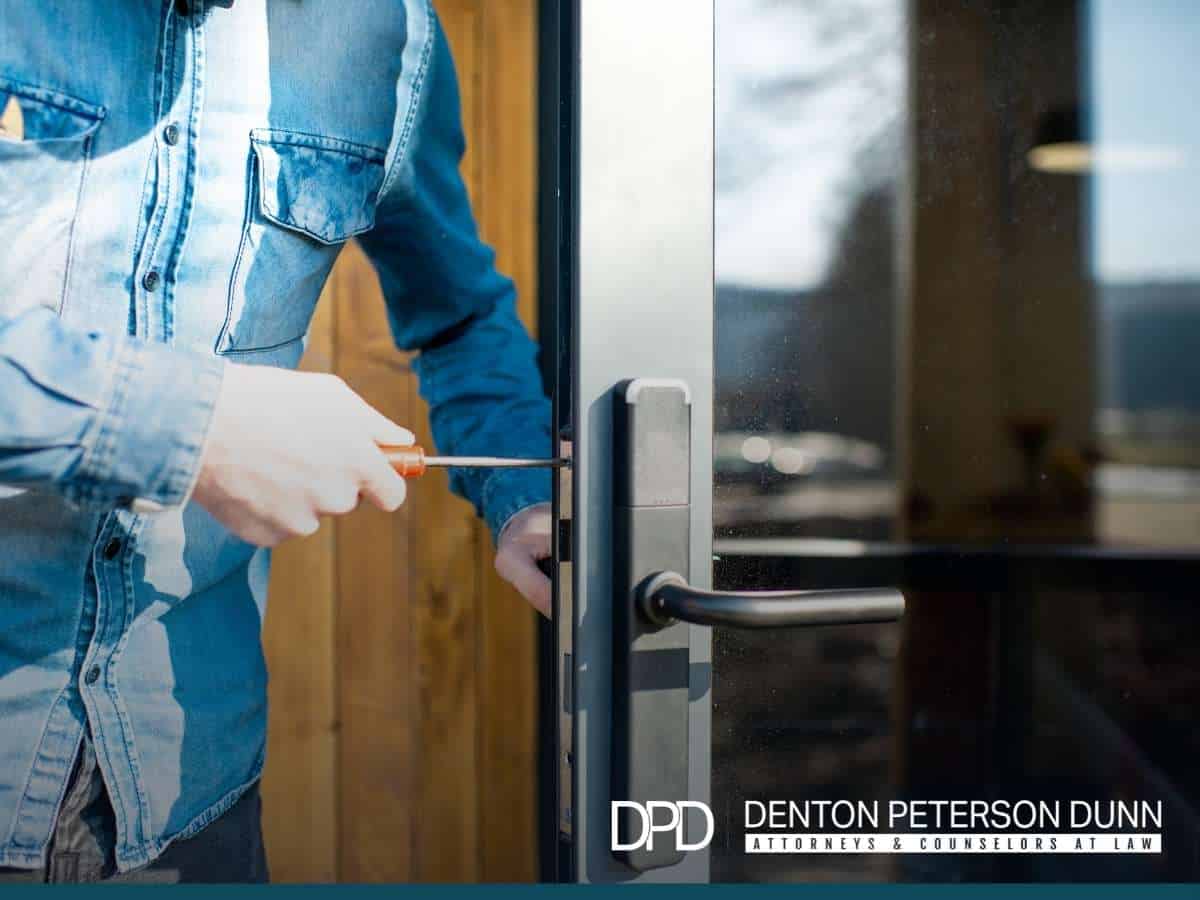Landlord Lockouts
Can Landlords Lock Out Tenants When They Fail To Pay?
A common question landlords have when tenants fail to pay rent is whether they can do a “lockout.” The answer to that question depends on the situation. First, for residential leases governed by the Arizona Residential Landlord and Tenant Act or the Arizona Mobile Home Parks Residential Landlord and Tenant Act, the answer is generally a clear NO. Those Acts outline specific ways (including eviction lawsuits) for landlords to retake possession. They also restrict landlords from obtaining possession any other way, including forcibly removing tenants or their possessions. Additionally, landlords cannot constructively retake possession by diminishing or interrupting utilities and/or other essential services.

Are Lockouts Permitted On Commercial Leases?
When a lease is not governed by those Acts, a landlord may be able to lock out defaulting tenants. A.R.S. § 33-361 states that when “a tenant neglects or refuses to pay rent when due and in arrears for five days, or when a tenant violates any provision of the lease, the landlord … may reenter and take possession ….” Thus, for commercial leases generally, the Arizona Landlord and Tenant Act permits lockouts.
However, that does not automatically mean that commercial landlords can simply lock out defaulting tenants. Courts will also enforce lease agreements between commercial landlords and tenants, and most commercial leases require that landlords provide notice (even though notice is not required by the statute) and follow other procedures before landlords can take any action against their tenants.

How Can Lockouts Be A Long-Term Advantage For Arizona Landlords?
In situations where it is allowed by law, and landlords have complied with the lease’s requirements, a lockout can be advantageous. Lockouts certainly apply pressure on tenants to pay rent, and Arizona statute creates a landlord lien on personal property of the tenant that can be sold after 60 days to apply to unpaid rent.
On the other hand, it sometimes does not make sense for landlords to lock out their tenants, even when it is allowed. While landlords have a lien on their tenants’ personal property for unpaid rent, landlords must hold on to it for 60 days before selling it. During that time frame, tenants often try to cure the default to retake possession. If a tenant cures, and property has been lost during the lockout, the tenant may assert a claim against the landlord. Additionally, even if a tenant does not cure, the landlord may not want to assume the burden of taking care of the tenant’s personal property for 60 days.
Get In Touch With Mesa’s Leading Real Estate Lawyers
Every case is different. Sometimes it makes sense to move swiftly with a lockout. Other situations call for following different procedures, including, potentially, filing an eviction lawsuit. If you have specific questions about your situation, you should seek the advice of an experienced landlord/tenant attorney.
Approved By:

Larry Dunn – Denton Peterson Dunn
Mesa Location
1930 N Arboleda #200
Mesa, AZ 85213
Office: 480-325-9900
Email: [email protected]
Website: https://arizonabusinesslawyeraz.com
Scottsdale Location
7272 E Indian School Rd #540-132
Scottsdale, AZ 85251
Phone: 480-325-9919
Email: [email protected]
Website: https://arizonabusinesslawyeraz.com